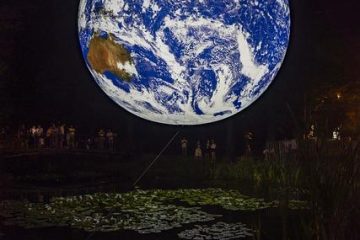In the mystical realm where science and mythology intersect, lies the enigmatic concept known as the Gaia hypothesis. This intriguing theory, derived from the Greek Earth Goddess, Gaia, delves into the interconnectedness and symbiotic relationship between the Earth’s biosphere and organisms living upon it. But what lies beneath the surface of this captivating hypothesis, and what secrets does its name hold? Join us on a journey of discovery as we unravel the captivating meaning behind the Gaia hypothesis name.
Table of Contents
- Understanding the Origin of Gaia Hypothesis
- Exploring the Deep Connection Between Gaia and Earth
- Unveiling the Philosophical Essence Behind Gaia Hypothesis
- Practical Applications and Implications of Gaia Hypothesis
- Q&A
- Concluding Remarks


Understanding the Origin of Gaia Hypothesis
The Gaia hypothesis proposes the idea that the Earth functions as a single, self-regulating organism. This intriguing concept suggests that the planet and all living organisms on it are interconnected in a complex, symbiotic relationship. James Lovelock and Lynn Margulis introduced this hypothesis in the 1970s, revolutionizing our understanding of Earth as a dynamic and interconnected system.
Central to the Gaia hypothesis is the notion that the Earth’s biosphere, lithosphere, hydrosphere, and atmosphere interact in a way that maintains the conditions necessary for life to thrive. This holistic view of the Earth challenges traditional scientific perspectives and highlights the intricate balance and harmony present in the natural world. Through the Gaia lens, Earth is seen as a living entity capable of regulating its own environment to support life forms.

Exploring the Deep Connection Between Gaia and Earth
The intrinsic bond between Gaia and Earth delves deep into the core of our existence, intertwining the very essence of nature with the planet we call home. This profound connection, rooted in the Gaia hypothesis, illuminates how Earth functions as a single organism, where all living beings and organic matter coexist harmoniously. Embracing this concept invites us to appreciate the intricate web of life that sustains us and underscores the importance of nurturing our environment for generations to come.
Key Insights:
- Gaia symbolizes the Earth as a living entity, interconnected and dependent on all its components.
- Understanding the Gaia hypothesis sheds light on how ecosystems maintain balance and resilience.
- By honoring this profound relationship, we can cultivate a deeper sense of respect and stewardship for our planet and its inhabitants.
Exploration and Reflection:
- Reflect on how your actions impact the delicate equilibrium of Gaia.
- Dive into the interconnectedness of ecosystems and the role each species plays in sustaining life.
- Consider how embracing the Gaia hypothesis can inspire positive change in environmental conservation efforts.
Unveiling the Philosophical Essence Behind Gaia Hypothesis
Exploring the deep-rooted meaning behind the Gaia Hypothesis unveils a tapestry of interconnectedness and harmony that intrigues both scientists and philosophers alike. At its core, the Gaia Hypothesis proposes that the Earth functions as a self-regulating organism, where living organisms and their inorganic surroundings interact and evolve together to maintain the conditions necessary for life.
This holistic view emphasizes the interdependence of all living beings and their environment, portraying Earth as a living entity with inherent intelligence and balance. By delving into the essence of Gaia, one encounters not just a scientific theory, but a profound philosophical concept that shifts perspectives and fosters a deeper appreciation for the intricate web of life on our planet.


Practical Applications and Implications of Gaia Hypothesis
The Gaia Hypothesis, proposed by James Lovelock in the 1970s, suggests that the Earth functions as a complex, self-regulating system that maintains conditions suitable for life. This theory challenges traditional views of the Earth as an inanimate environment, instead portraying it as a living organism that interacts with its atmosphere, oceans, and biosphere in a harmonious manner.
Practical applications and implications of the Gaia Hypothesis include:
- Ecological Awareness: By viewing the Earth as a living entity, the Gaia Hypothesis promotes a deeper understanding of the interconnectedness of all life forms and the importance of preserving biodiversity.
- Climate Change Considerations: This theory raises questions about human impact on the planet and the need for sustainable practices to maintain Earth’s delicate balance.
In essence, the Gaia Hypothesis challenges us to rethink our relationship with the environment and highlights the need for responsible stewardship of our planet.
Q&A
Q: What is the meaning behind the name “Gaia Hypothesis”?
A: The term “Gaia Hypothesis” originates from Greek mythology, where Gaia represented the primal Earth goddess. The hypothesis itself, proposed by scientist James Lovelock in the 1970s, suggests that the Earth functions as a self-regulating organism to maintain conditions suitable for life. The name “Gaia” symbolizes the interconnectedness and harmony of all living and non-living components of our planet working together as a unified system.
Concluding Remarks
As we journey through the depths of the Gaia hypothesis, we unravel the intricate layers of its name and the profound meanings it holds. From the ancient roots of Gaia, the primordial goddess of the Earth, to the modern interpretation of Earth as a self-regulating organism, the name itself echoes a harmony between science and mythology. Embracing the interconnectedness of all life forms on our planet, the Gaia hypothesis invites us to contemplate our role as stewards of this living, breathing entity we call home. Let us continue to explore, to question, and to inspire a deeper understanding of our beautiful and complex Gaia. For in her name, we find not just a word, but a doorway to a world of wonder and wisdom.




0 Comments